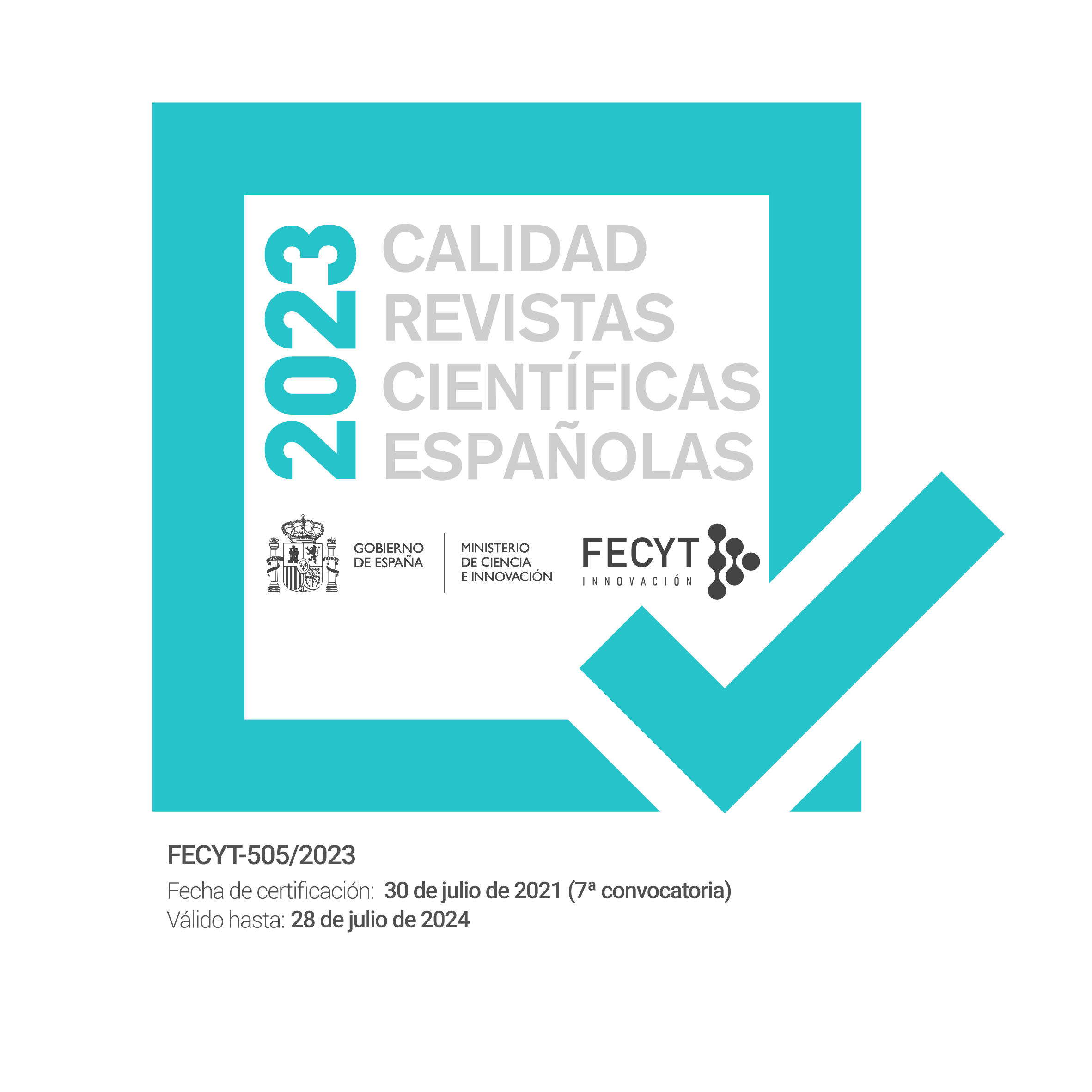Reivindicaciones del crédito epistémico en el contexto social
Resumen
Claims of epistemic credit in social context
Resumen: En este ensayo explico la propuesta fundamental de Conocimiento expropiado (Broncano 2020) en el marco agencial y fiabilista que asume el autor. A continuación, me centro en su análisis de las situaciones de injusticia testimonial, contraponiendo los caminos seguidos por Miranda Fricker (enfocado en el prejuicio del intercambio testimonial) y Broncano (enfocado en el desajuste estructural). Tras señalar las deficiencias de cada modelo, apunto una propuesta alternativa: la injusticia testimonial se produce cuando la atribución de credibilidad es efecto de un juicio identitario, ya sea este ajustado o no, con respecto al colectivo al que pertenece la testigo.
Abstract: In this essay, I explain the main claim of Conocimiento expropiado (Broncano 2020) against the background of the agential and reliabilist framework that its author assumes. I then focus on his analysis of situations of testimonial injustice, opposing Miranda Fricker’s approach (focused on prejudice in testimonial exchanges) and Broncano’s one (focused on structural imbalances). By pointing out the shortcommings of both models, I skech an alternative proposal: testimonial injustice is produced when the credibility assessment results from an identity judgment, whether it is effectively appropriate regarding the collective or not.
Palabras clave: Epistemología política, fiabilismo agencial, injusticia testimonial, credibilidad.
Keywords: Political Epistemology, agent reliabilism, testimonial injustice, credibility.
Texto completo:
PDFReferencias
Ayala-López, S. 2018, “A Structural Explanation of Injustice in Conversations: It’s about Norms”, Pacific Philosophical Quarterly, 99 (4): 726-48.
Broncano, F. 2020, Conocimiento expropiado: epistemología política en una democracia radical, Madrid: Akal.
Carmona, C. 2021, “Silencing by Not Telling Testimonial Void as a New Kind of Testimonial Injustice”, Social Epistemology: 17.
Craig, E. 1999, Knowledge and the State of Nature, Oxford: OUP.
Conee, E. y Feldman, R. 2013, “El problema de la generalidad para el fiabilismo”, en C. L. García, Á. Eraña y P. King Dávalos (ed.), Teorías contemporáneas de la justificación epistémica, México: UNAM.
Dotson, K. 2012, “A Cautionary Tale: On Limiting Epistemic Oppression”, Frontiers: A Journal of Women Studies, 33 (1): 24.
Fricker, M. 2017, Injusticia epistémica, Barcelona: Herder.
Medina, J. 2012, The Epistemology of Resistance: Gender and Racial Oppression, Epistemic Injustice, and Resistant Imaginations, Oxford: OUP.
Mills, Ch. W. 2007, “White Ignorance”, en S. Sullivan y N. Tuana (ed.), Race and epistemologies of ignorance, Albany: SUNY Press, 13-38.
Navarro, J. 2015, “No achievement beyond intention: A new defence of robust virtue epistemology”, Synthese, 192 (10): 3339-69.
Navarro, J. 2021, “Epistemic Luck and Epistemic Risk”, Erkenntnis, https://doi.org/10.1007/s10670-021-00387-9.
Pundik, A. 2021, “Rethinking the Use of Statistical Evidence to Prove Causation in Criminal Cases: A Tale of (Im)Probability and Free Will”, Law and Philosophy, 40 (2): 97-128.
Smith, M. 2018, “When Does Evidence Suffice for Conviction?”, Mind, 127 (508): 1193-218.
Sosa, E. 2015, Judgment and Agency, Oxford: OUP.
Enlaces refback
- No hay ningún enlace refback.


Esta obra está bajo una licencia de Creative Commons Reconocimiento-NoComercial-SinObraDerivada 4.0 Internacional.
